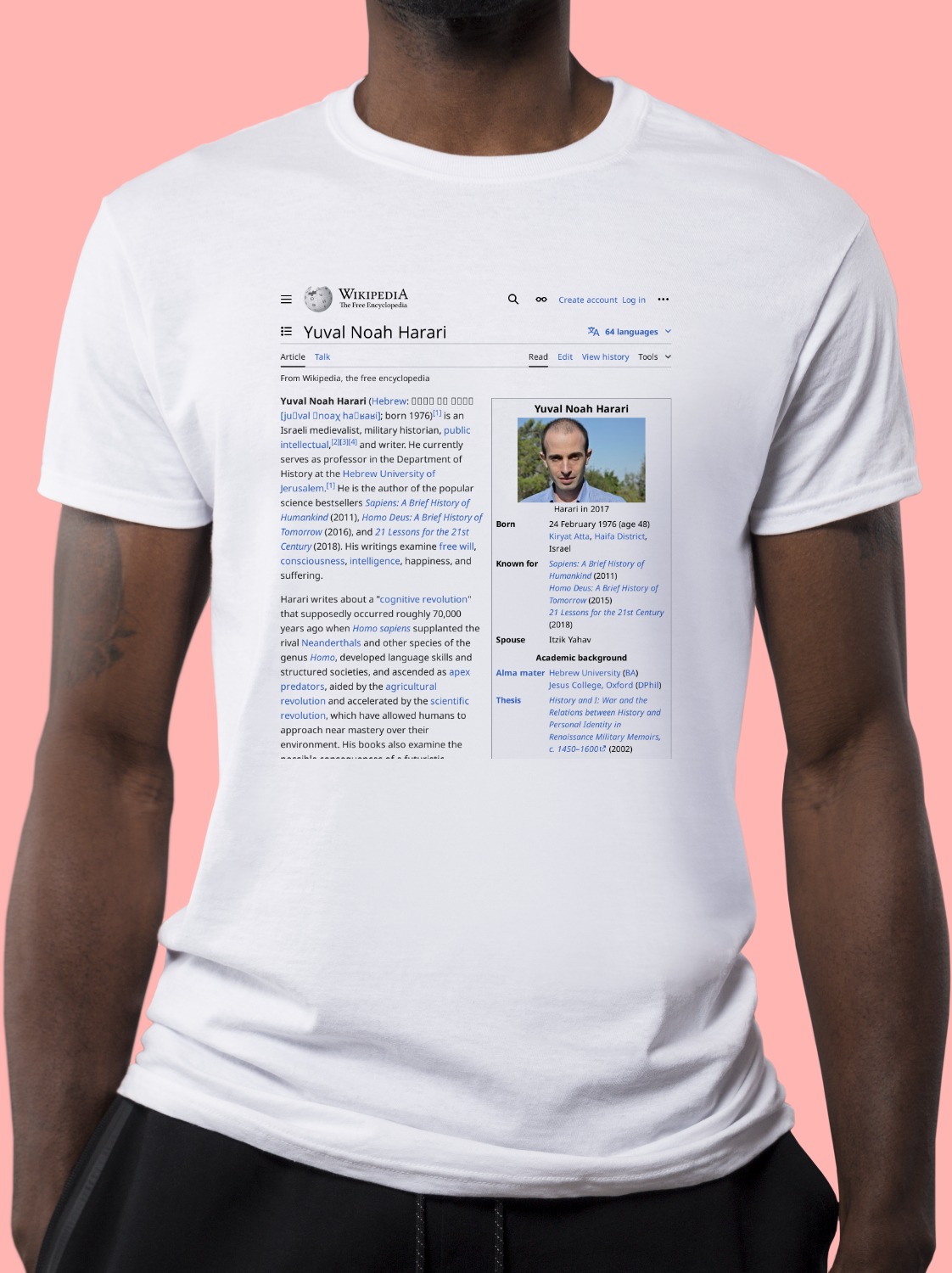
Yuval Noah Harari Shirt
A classic cotton tee emblazoned with the Wikipedia article on Yuval Noah Harari ↗.
cotton tee emblazoned with the Wikipedia article on Yuval Noah Harari ↗.- Preshrunk jersey knit
- Seamless double-needle 2.2 cm collar
- Taped neck and shoulders
- Tear away label
- Double-needle sleeve and bottom hems
- Quarter-turned to eliminate centre crease
Yuval Noah Harari (Hebrew: יובל נח הררי [juˈval ˈnoaχ haˈʁaʁi]; born 1976) is an Israeli medievalist, military historian, public intellectual, and popular science writer. He currently serves as professor in the Department of History at the Hebrew University of Jerusalem. His first bestselling book, Sapiens: A Brief History of Humankind (2011) is based on his lectures to an undergraduate world history class. His other works include the bestsellers Homo Deus: A Brief History of Tomorrow (2016), 21 Lessons for the 21st Century (2018), and Nexus: A Brief History of Information Networks from the Stone Age to AI (2024). His published work examines themes of free will, consciousness, intelligence, happiness, suffering and the role of storytelling in human evolution.
In Sapiens, Harari writes about a "cognitive revolution" that supposedly occurred roughly 70,000 years ago when Homo sapiens supplanted the rival Neanderthals and other species of the genus Homo, developed language skills and structured societies, and ascended as apex predators, aided by the First Agricultural Revolution and accelerated by the Scientific Revolution, which have allowed humans to approach near mastery over their environment. Furthermore, he examines the possible consequences of a futuristic biotechnological world in which intelligent biological organisms are surpassed by their own creations; he has said, "Homo sapiens as we know them will disappear in a century or so". Although Harari's books have received considerable commercial success since the publication of Sapiens, his work has been more negatively received in academic circles.
About Wikishirt
Wikishirt is a retail experiment that lets you buy a shirt with any Wikipedia Article printed on it. There are over 5 million Wikipedia articles, so we have over 5 million shirts.Check out our homepage for random featured shirts and more!